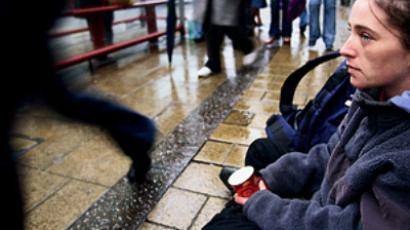Mexican deportees reassess their options on the wrong side of the border
Some never made it to the United States, and some lived there many years, but all the illegal immigrants sitting in the deportation port of Nogales, Mexico are wondering what to do next
Ruben Antonio Baltazar has been lost and disoriented for three days looking for his pregnant wife. He became separated from her as they were trying to cross the Mexican border into the United States. After his wife became ill, he went to look for help, but ended up being picked up by Border Patrol and deported to Nogales, Mexico, one of several “deportation ports” along the US-Mexican border.
Like many other deportees, Baltazar has enlisted the help of Rev. Donald Bahlinger, a Jesuit priest who has set up a haven for deported Mexicans known throughout Nogales as “El Comedor,” The Dining Room.
"They are really going through a traumatic experience,” said Bahlinger,” being rejected and rounded up like cattle. Somebody was mentioning to me today that it’s like the Nazis did in Germany, rounding up people and sending them to the concentration camps."
Through word of mouth, hundreds of Mexicans visit Bahlinger every day, looking for things as simple as food, water or someone to listen. Buses full of deported Mexicans come into Nogales every day. Many of the deportees are from distant parts of Mexico, thousands of miles away. Hundreds are left here on their own to find food and shelter and make plans for what to do next.Some of these immigrants never completely made it across the border, but others spent decades in the US building lives and families that they eventually had to leave behind.
"My thoughts are that the government of the United States ripped apart my family, they took my kids. But, what am I going to do?" said Juan Carlos Dias Romero, a deportee.
Every evening, Rev. Bahlinger says a prayer to give these people hope and the strength to go on.
"One of the things that we try to reflect on is human dignity, that every person has a value," said Bahlinger.
The truth of their humanity and value is one that many like Romero and Baltazar need to be reminded of in order to rebuild their lives, even if they never make it back to the United States.













